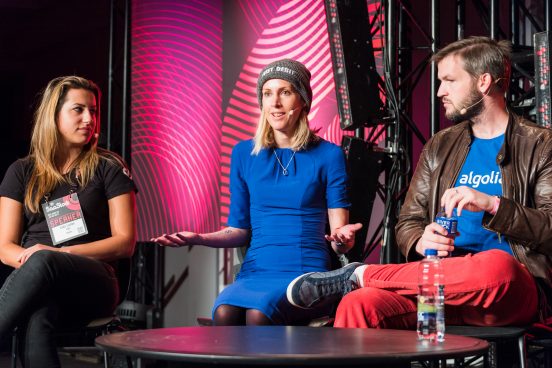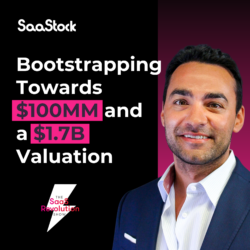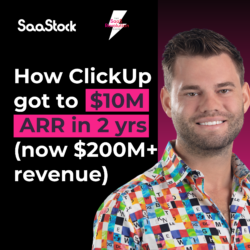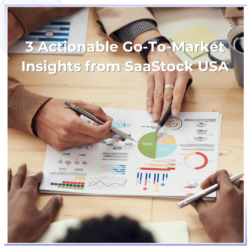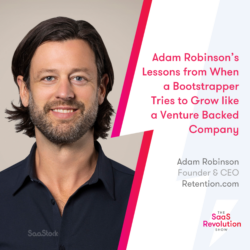I am happy to share that SaaStock is announcing the Zendesk/SaaStock Inclusivity Pledge, currently, a gender diversity pledge that will bring a more diverse slate of speakers to not only this year’s SaaStock conference but to all of our conferences going forward. In partnership with our Diversity & Inclusion sponsor Zendesk, whose executives refuse to speak at events where no women are involved, we are taking an important step forward on the journey of making SaaS conferences and the tech ecosystem more diverse.
I am proud and excited on equal measure. So how did Zendesk come to be our partner in diversity and inclusion?
This story begins last November in Brazil with a serendipitous meeting. I was at Brazil SaaS Forum where Mikkel Svane, co-founder and CEO of Zendesk was speaking. Eric Santos, CEO of Resultados Digitais introduced me to him, and Mikkel, in turn, invited me to a dinner Zendesk was hosting that night. I happened to sit next to the Director of the Office of the CEO, Kristen Durham. We talked about many things, among which included the lack of gender diversity that tech and especially SaaS experiences.
At the time I had no idea that Mikkel had promised that he wouldn’t speak on a panel at a tech conference if there were only men on it. Many other Zendesk executives had taken the same pledge.
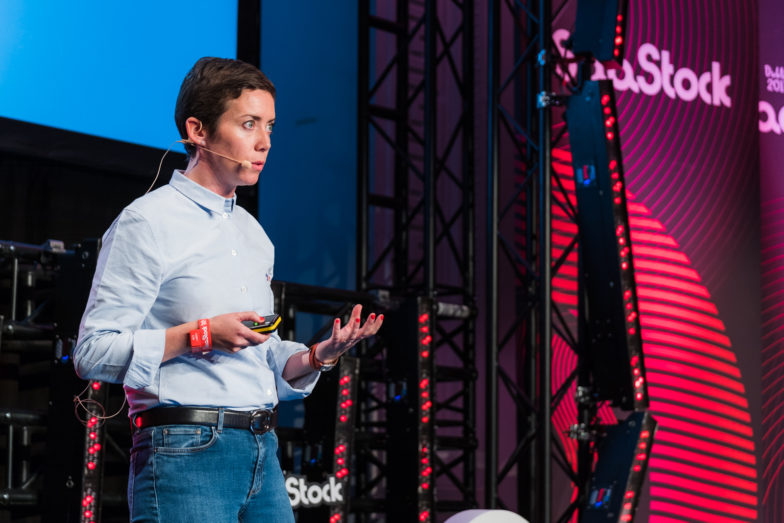
An attempt at a Diversity SaaStock program
A few months before that dinner, when we were ramping up for SaaStock17, we had introduced a diversity package, offering tickets at the lowest possible price. The only requirement to get that ticket was that a person of diverse background partner up with another person of diverse background- whether that is based on gender, ethnicity, sexuality, religion, skin color, disability or any other trait- to get the bundle together.
We knew well how white, male and privileged SaaS was, and we wanted to change the ratio. But we didn’t want to do it by throwing free tickets at the problem. That would devalue the effort and undermine every woman or person of diverse background because they may have been on a “free pass.”
In retrospect, we had over thought and overcomplicated that program. Speakers like Rachel Delacour from Zendesk and Nicola Anderson from GoCardless congratulated us for the initiative, but very few bought the package. We promised ourselves to do better next year, both in terms of the ratio of speakers but also in terms of attendees.
We left the conversation with Kristen somewhere there. I flew back to Europe and began building the SaaStock18 agenda as well as 5 SaaStock on Tours agendas.
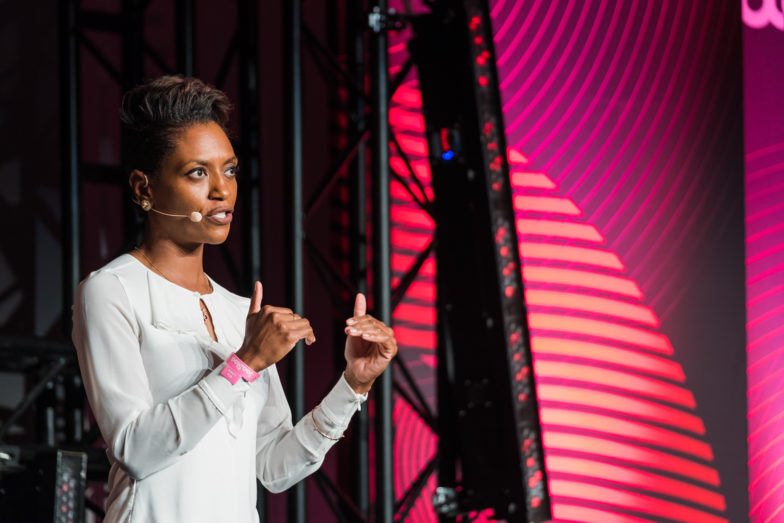
Why it’s so difficult to recruit female speakers in Europe
I asked for recommendations of female speakers and began approaching them to see if they wanted to speak. For the most part, they said “No” to me. Did I try hard enough to convince them? Probably not. Speaker recruitment was one of a million things I was doing at the time.
As I was creating the agenda for SaaStock on Tour New York, however, I managed to achieve a 50% gender distribution of speakers. Why had it been so much easier to do that for that event?
It occurred to me that it was far easier to convince female founders and executives in North America to speak at conferences than it was in Europe. Once again, I was reminded of how different we can be on the two continents. We are all that more humble, and less braggadocious here and it affects everything we do. We don’t do bravado. Reading up how Silicon Valley was solving its gender inequality, I had approached the problem the wrong way.
It was around that time that Christoph Janz, Managing Partner at Point9 introduced me to Tiffany Apczynski, VP Public Policy and Social Impact at Zendesk. Kristen had suggested to Tiffany that she talk with us to see if we would be interested in co-authoring a pledge with Zendesk and become an official diversity partner. The timing was great in that Zendesk was increasing their presence in Dublin, aiming to make inclusion as big a priority there as they do in the U.S. SaaStock currently is one of the biggest tech gatherings in Europe with 3,000 attendees.
Tiffany and I exchanged a few emails and had a few calls and decided that we would work together to make SaaStock more diverse, actively working toward being a solution to the historic problem.
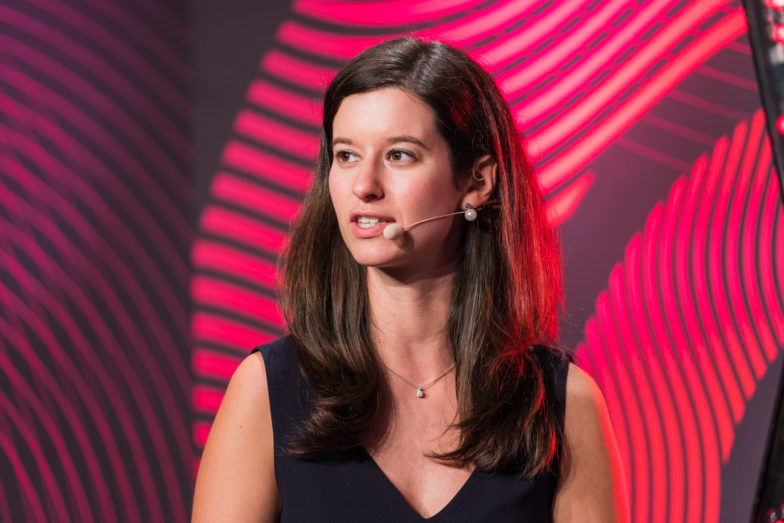
So what are we doing?
Zendesk’s approach to diversity and inclusion lies in taking ownership of the things the company can change.
“We’re at a moment where companies and individuals alike need to commit to using our power, privilege, and influence to actively challenge the status quo,” Zendesk’s VP of Public Policy & Social Impact Tiffany Apczynski told me, and further added “SaaStock’s commitment doesn’t call for a dramatic quota or policy change, it’s a simple promise built on the notion that women should always be present when meaningful and strategic conversations are happening.”
I know we have a way to go, and if you look at the agenda of SaaStock18 we are still part of the problem. I cannot speak enough how much I appreciate and value that Tiffany, Kristen and the Zendesk team approached us and are entrusting us with it regardless of that fact. They see the potential to change rather than just point fingers. And at the end that is what you need for meaningful change – someone taking a chance on you.
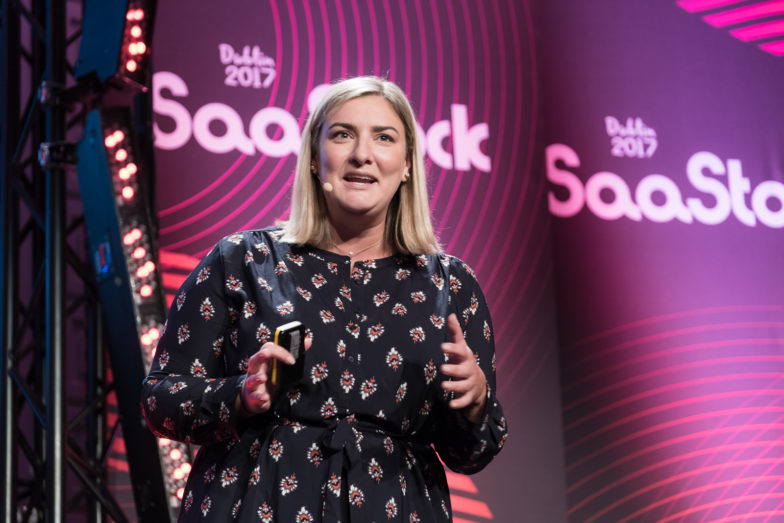
What does it mean that we are now holding the pledge?
It means that I will stand up on the stage and as I welcome 3000 attendees I will also talk about the Zendesk/SaaStock Inclusivity Pledge. Further, we will ask every speaker to take the pledge with us and say a few words on stage so more people can hear about it. Especially the women in the crowd, so they feel welcomed and appreciated and maybe next year agree to be the ones up on the stage.
We will work to have a 50% gender equality representation on the stage of any SaaStock event from 2019 onwards. One immediate thing I have done to get us there is hiring SaaStock’s first Head of Event Content, Emma Pearce. I have always loved building the agendas but for me it has come in between everything else I do. And for the agenda to be both excellent and diverse in perspective, it needs someone’s full attention. One of Emma’s priorities will be in helping us achieve gender and diversity equality.
All that is just the beginning, for the rest we need everyone on that journey with us.
